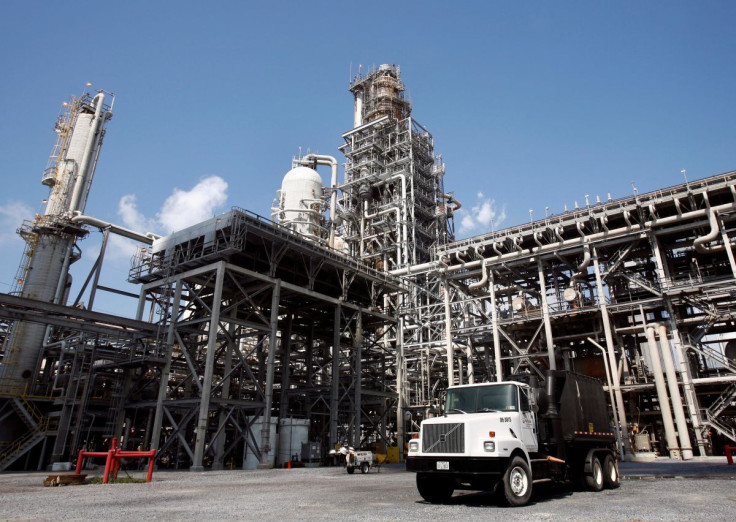U.S. Fuel Demand Remains Strong, Despite Recent Data - Refiners

Demand for transportation fuels remains strong despite mixed signals from inventory data collected by the U.S. Energy Information Administration (EIA), U.S. fuelmakers said on Thursday.
Fears that the U.S. economy is heading into a recession have sent crude oil prices lower as recessions are usually followed by periods of lower fuel demand.
Demand for gasoline has remained below the five-year seasonal average since early June, according to EIA data. U.S. gasoline demand rebounded by 8.5% last week after falling in early July, the data showed.
"Through our wholesale channel, there's really no indication of any demand destruction ... in June, we actually set sales records," Gary Simmons, Valero Energy Corp executive vice president, told analysts on the company's second-quarter earnings call on Thursday.
He added that the company sold 911,000 barrels a day in the month of June, surpassing a previous record in August 2018.
"Our seven-day averages now are back to kind of that June level, with gasoline at pre-pandemic levels and diesel continuing to trend above pre-pandemic levels," Simmons said.
PBF Energy Inc executives also said on a Thursday earnings call that wholesale demand has remained strong.
"We're at the same levels we've been for the past 90 days," said PBF Chief Executive Tom Nimbley.
Average gasoline prices, a major contributing factor to U.S. inflation, have come down 15% in the past month, according to data from the American Automobile Association.
Refiners say that even if the United States is to experience a recession, refiners will still need to churn out fuel to restock inventories depleted during the first half of 2022.
"Inevitably inventories will need to be replenished from these extraordinary low levels ... this will require refineries to continue running at high levels of utilization," Nimbley said.
U.S. refiners will also be able to sell fuel to South America at competitive prices even if demand falls in the United States due to a recession, according to Simmons.
U.S. distillate inventories are at 111.7 million barrels, well below the 10-year seasonal average. In May, distillate inventories fell below 105 million, the lowest level since 2005.
Due to a recent recovery in jet fuel demand, U.S. refineries are shifting fuel yields away from making gasoline and prioritizing jet fuel and ultra low sulfur diesel, Simmons said.
More diesel is also being pulled into the marine sector due to shipping rules that took effect in 2020 which required vessels to use low sulfur marine fuel, he added.
© Copyright Thomson Reuters 2024. All rights reserved.











